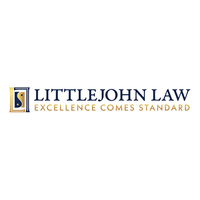Explore web search results related to this domain and discover relevant information.
An estate tax closing letter (ETCL) is available only where a Form 706, U.S. Estate Tax Return, or Form 706-NA, Estate Tax Return for a nonresident not a citizen of the U.S., is filed, even if no Federal estate tax is due. Note that an estate tax closing letter is not applicable to and is not ...
An estate tax closing letter (ETCL) is available only where a Form 706, U.S. Estate Tax Return, or Form 706-NA, Estate Tax Return for a nonresident not a citizen of the U.S., is filed, even if no Federal estate tax is due. Note that an estate tax closing letter is not applicable to and is not available for Form 1041.If, however, the executor properly elected out of the estate tax and elected to apply the new carryover basis rules enacted under the Economic Growth and Tax Relief Reconciliation Act of 2001, then a Form 706 would not have been filed.The executor was not required to substantiate on the Form 4768 the reason for requesting an extension of time for payment of the estate tax to receive the six-month extension of time to pay the estate tax due. However, interest accrued on the estate tax liability from the due date of the return, excluding extensions. See I.R.C. § 6601. Yes, if you made gifts that are subject to the gift tax.Yes, unless the executor elected to apply the new carryover basis rules instead of the estate tax. For more information, you should consult your tax adviser. Yes, if the gross estate, plus adjusted taxable gifts and specific exemption exceeded the applicable exclusion amount for the year of death.
The Estate Tax is a tax on your right to transfer property at your death. It consists of an accounting of everything you own or have certain interests in at the date of death (Refer to Form 706 PDF). The fair market value of these items is used, not necessarily what you paid for them or what ...
Most relatively simple estates (cash, publicly traded securities, small amounts of other easily valued assets, and no special deductions or elections, or jointly held property) do not require the filing of an estate tax return. A filing is required if the gross estate of the decedent, increased by the decedent’s adjusted taxable gifts and specific gift tax exemption, is valued at more than the filing threshold for the year of the decedent’s death, as shown in the table below.Get information on how the estate tax may apply to your taxable estate at your death.The Estate Tax is a tax on your right to transfer property at your death. It consists of an accounting of everything you own or have certain interests in at the date of death (Refer to Form 706 PDF). The fair market value of these items is used, not necessarily what you paid for them or what their values were when you acquired them.Once you have accounted for the Gross Estate, certain deductions (and in special circumstances, reductions to value) are allowed in arriving at your "Taxable Estate." These deductions may include mortgages and other debts, estate administration expenses, property that passes to surviving spouses and qualified charities.

Fundamentally, an estate is the total of a person’s assets, less any liabilities or debts. The value of a personal estate may become relevant if an individual declares bankruptcy. In these instances, the estate is assessed to determine which debts can be paid.
Upon death, the assets encompassed within an estate must be distributed to beneficiaries or heirs. Without an estate plan in place, the estate may go to probate, which can be a drawn-out and expensive process. If an estate has more liabilities than assets, it is considered insolvent.The first order of business that an executor of an estate must initiate is paying all taxes and debts. If the estate assets are sold off and there is still debt owed, then the beneficiaries may only receive items that hold no monetary value.A Petition to Probate must be filed by the executor of the estate or a probate attorney. A notice must be provided to beneficiaries and heirs. A public notice must also be published to inform creditors and other interested parties. A hearing will be held to determine the validity of a will if one exists.The executor must file a final report with the probate court on all income received and payments made by the estate. The remaining assets are divided among beneficiaries named in the will if one exists. If there is no will or estate plan in place, the probate court will determine who will inherit assets based upon intestate succession laws.

Everything owned by a person who has died is known as their estate. The estate may be made up of: money, both cash and money in a bank or building society account ... If the person who died owes money to other people, for example, on a credit card, for fuel, for rent or a mortgage, this comes ...
Everything owned by a person who has died is known as their estate. The estate may be made up of: money, both cash and money in a bank or building society account ... If the person who died owes money to other people, for example, on a credit card, for fuel, for rent or a mortgage, this comes out of the estate.The estate of the person who has died is usually passed to surviving relatives and friends, either according to instructions in the will, or if the person dies without leaving a will, according to certain legal rules called the rules of intestacy.For information about the rules of intestacy, see Who can inherit if there is no will – the rules of intestacy. The person dealing with the estate of the person who has died is called an executor or an administrator. An executor is someone who is named in the will as responsible for dealing with the estate.If you need to report the death to the Department for Work and Pensions (DWP), you can telephone the DWP Bereavement Service. They can deal with all the DWP benefits that were being paid to the person who died. They can also check whether the next of kin is entitled to any benefits. For more information about this service, see What to do after a death. Some assets are still taxed during the administration period. The estate needs to pay income tax for income it gets during this time - for example bank interest or rent.
If you own a home, passing that property on to someone else — whether it’s a spouse, your children or someone else — requires planning. That’s where a life estate can come in. A life estate is a legal way to own property with someone else and pass it on to them automatically when you die.
Creating this type of ownership arrangement can help remove the property from the probate process. A life estate can also be useful when planning for long-term care needs if you anticipate having to apply for Medicaid.If you want hands-on guidance navigating this process, consider finding a financial advisor to work with. A life estate is a special ownership arrangement that allows you to share a property with someone else. Each of the people in a life estate has an ownership interest in a piece of real estate — typically your primary home — but over different periods.Potential tax benefits: Life estates may offer certain tax advantages, such as a step-up in basis for the remainder beneficiaries. This can result in reduced capital gains taxes if the property is sold after the life tenant’s passing.Limited control over property: Once a life estate is established, the original owner, or life tenant, retains the right to use the property during their lifetime but cannot sell or mortgage it without the consent of the remaindermen. This limitation can be restrictive if the life tenant’s financial situation changes or if they wish to relocate.
If a person dies leaving a will ... probate assets. If you are, for example, a joint bank account holder with the deceased, or a beneficiary of a life insurance policy or annuity, you do not need to pay these debts yourself. In this situation, “estate” again means only ...
If a person dies leaving a will with a clause like the one above, then the debts must be paid from the probate assets. If you are, for example, a joint bank account holder with the deceased, or a beneficiary of a life insurance policy or annuity, you do not need to pay these debts yourself. In this situation, “estate” again means only probate assets.When planning your own estate, if, for some reason, you are really adamant that your debts be paid when you die, then do not take steps to turn probate property into non-probate property. For example, do not add a joint bank account holder and keep the account in your name only.Also, be sure to name your estate as the beneficiary of any life insurance policy or annuity. That, in effect, will turn non-probate property into probate property that creditors can recover. We do not recommend that you do this, as we are in the business of helping you protect your assets. “If a person goes on Medicaid, Medicaid will make a claim against their estate.”Translation: If a person goes on Medicaid, Medicaid can recover both probate and non-probate assets. When it comes to Medicaid Estate Recovery, the word “estate” has a much more expanded definition: it includes all probate assets and any other real property, personal property, or other assets in which the deceased had any legal title or interest at the time of their death.

: an estate subject to a contingency whose happening permits the grantor of the estate to terminate it if he or she so chooses compare fee simple determinable at fee simple
The meaning of ESTATE is state, condition. How to use estate in a sentence.state, condition; social standing or rank especially of a high order; a social or political class; specifically : one of the great classes (such as the nobility, the clergy, and the commons) formerly vested with distinct political powers… See the full definitionstate, condition; social standing or rank especially of a high order… See the full definitionNoun Don Felder, a second cousin who now helps manage Gibson’s estate and legacy, grew up hearing her tell stories breaking the barriers in tennis and then in golf. —Matthew Futterman, New York Times, 6 Sep.

Under intestate succession, the members of a class generally will get equal shares. If Ron dies with an estate worth $5 million and five living children, each child would receive $1 million. If one of Ron's five children is already dead—and didn't have children—then the remaining four children ...
Most states make the surviving spouse or registered domestic partner, if any, the first choice. Adult children are usually next on the list, followed by other family members. (If you've been chosen to serve as executor of an estate, see Should You Accept the Job of Executor to Settle an Estate?)Under intestate succession, the members of a class generally will get equal shares. If Ron dies with an estate worth $5 million and five living children, each child would receive $1 million. If one of Ron's five children is already dead—and didn't have children—then the remaining four children will divide the $5 million equally.All states have rules that bar certain people from inheriting if they behaved badly toward the deceased person. For example, someone who criminally caused the death of the deceased person is almost never allowed to profit from the death. And, in many states, a parent who abandoned or refused to support a child, or committed certain crimes against a child, can't inherit from that child. (Learn more about relatives' rights to claim parts of an estate in Inheritance Rights.)If you're settling the estate of a deceased person who hasn't left a will, you probably have more than a few questions about how the estate will be distributed.


If you leave behind assets when you die, your estate may owe taxes. But the exemption amount in 2025 is so large that most U.S. taxpayers don't have to worry.
When someone dies, everything they own — such as homes, bank accounts, investments and personal belongings — becomes part of their estate for the purposes of the U.S. federal estate tax. But only if the estate’s value surpasses a certain threshold, or exemption amount, will it be subject to the estate tax, sometimes called the “death tax.” The tax rate for estates currently ranges from 18 to 40 percent, depending on how much of the estate exceeds the exemption amount.But the One Big Beautiful Bill Act extended much of the TCJA, including the higher estate tax exemption amounts. Starting in 2026 the exemption amount rises to $15 million per person, or $30 million per married couple, with annual inflation adjustments in the years following. Lifetime exemption: The lifetime exemption allows up to $13.99 million in tax-free transfers. For example, if an estate is worth $15 million, only the remaining $1.01 million is taxed.File form 706 and pay the tax: The estate tax return is due within nine months of a person’s death, with an optional six-month extension. Any taxes owed must be paid before distributing assets to heirs. If the estate doesn’t have enough liquid assets to cover the tax bill, the executor may need to sell property, securities or other assets to raise funds.By transferring assets to beneficiaries early, you can reduce the overall size of your taxable estate and minimize potential tax liabilities. For example, the IRS allows you to gift up to $19,000 per recipient in 2025 without triggering the need to file a gift tax return. (This amount adjusts each year for inflation.) This annual exclusion lets you transfer wealth tax-free over time. If you give someone more than the annual exclusion amount, you typically have to file a gift tax return but you likely won’t owe gift taxes.
Beyond these major events, consider reviewing your estate plan when you experience: Job loss or significant career changes - Affecting your ability to fund trusts or maintain life insurance · Retirement - Shifting from wealth accumulation to wealth preservation and distribution · Starting or selling a business - Business interests require specialized planning strategies · Receiving substantial gifts or inheritances - New wealth changes your planning needs, especially if ...
Beyond these major events, consider reviewing your estate plan when you experience: Job loss or significant career changes - Affecting your ability to fund trusts or maintain life insurance · Retirement - Shifting from wealth accumulation to wealth preservation and distribution · Starting or selling a business - Business interests require specialized planning strategies · Receiving substantial gifts or inheritances - New wealth changes your planning needs, especially if the inheritance pushes your net worth close to the estate tax exemption amount, both state and federalUnderstanding when and why to review your estate plan can mean the difference between your wishes being honored and your family facing unnecessary complications during an already difficult time.Life events such as moving, getting a new job, having a child or grandchild, selling a major asset, or experiencing a medical condition can significantly impact the administration and distribution of your estate.Most state’s law recognizes that events like birth, adoption, marriage, divorce, or death can affect the administration or distribution of a trust, and trustees are expected to exercise reasonable care to account for such changes. This legal recognition underscores a fundamental truth: static estate plans often fail to serve their intended purpose when life circumstances change.
As noted above, it is important ... of the estate and must pass through probate. Consulting a lawyer is crucial to navigate the complexities of the probate process. When a person owns property, it can be held in different ways, such as jointly with another person or in their sole name. If a person owns ...
As noted above, it is important to know that not everything becomes part of the estate and must pass through probate. Consulting a lawyer is crucial to navigate the complexities of the probate process. When a person owns property, it can be held in different ways, such as jointly with another person or in their sole name. If a person owns property jointly with another person, it is considered joint ownership, and the property will automatically pass to the surviving owner when the other person dies.However, if a person owns property in their sole name, it will become part of their estate and will be distributed according to their will or the laws of the state. The probate laws of the state will determine how the property is distributed, and the probate court will oversee the process.The deceased person’s estate includes all their assets, such as bank accounts, investment accounts, and real property, as well as their debts and unpaid bills. Can I Assume a Mortgage If Someone Passes Away?To receive the decedent’s property share of real estate, there has to be an express right of survivorship. Also, if there is property owned by the decedent that has a designated beneficiary, that property will also pass directly to the person or persons named as the beneficiaries.

In common law, an estate is a living or deceased person's net worth. It is the sum of a person's assets, meaning their the legal rights, interests, and entitlements to property of any kind, minus all their liabilities at a given time. The issue is of special legal significance on a question ...
In common law, an estate is a living or deceased person's net worth. It is the sum of a person's assets, meaning their the legal rights, interests, and entitlements to property of any kind, minus all their liabilities at a given time. The issue is of special legal significance on a question of bankruptcy and death of the person.Under United States bankruptcy law, a person's estate consists of all assets or property of any kind available for distribution to creditors. However, some assets are recognized as exempt to allow a person significant resources to restart their financial life.In land law, the term "estate" is a remnant of the English feudal system, which created a complex hierarchy of estates and interests in land. The allodial or fee simple interest is the most complete ownership that one can have of property in the common law system.An estate can be an estate for years, an estate at will, a life estate (extinguishing at the death of the holder), an estate pur autre vie (a life interest for the life of another person) or a fee tail estate (to the heirs of one's body) or some more limited kind of heir (e.g.The fee simple estate and the fee tail estate are estates of inheritance; they pass to the owner's heirs by operation of law, either without restrictions (in the case of fee simple), or with restrictions (in the case of fee tail).

State laws called "intestate succession laws" control who inherits property if no will exists. Learn what to expect if a deceased person has not left a will.
Most states make the surviving spouse or registered domestic partner, if any, the first choice. Adult children are usually next on the list, followed by other family members. (If you've been chosen to serve as executor of an estate, see Should You Accept the Job of Executor to Settle an Estate?)Under intestate succession, the members of a class generally will get equal shares. If Ron dies with an estate worth $5 million and five living children, each child would receive $1 million. If one of Ron's five children is already dead—and didn't have children—then the remaining four children will divide the $5 million equally.All states have rules that bar certain people from inheriting if they behaved badly toward the deceased person. For example, someone who criminally caused the death of the deceased person is almost never allowed to profit from the death. And, in many states, a parent who abandoned or refused to support a child, or committed certain crimes against a child, can't inherit from that child. (Learn more about relatives' rights to claim parts of an estate in Inheritance Rights.)If you're settling the estate of a deceased person who hasn't left a will, you probably have more than a few questions about how the estate will be distributed.
You'll need to get a tax identification number for the estate called an employer identification number (EIN). An estate is required to file an income tax return if assets of the estate generate more than $600 in annual income. For example, if the deceased had interest, dividend or rental income ...
You'll need to get a tax identification number for the estate called an employer identification number (EIN). An estate is required to file an income tax return if assets of the estate generate more than $600 in annual income. For example, if the deceased had interest, dividend or rental income when alive, then after death that income becomes income of the estate that you need to include on an estate income tax return.For help, see the file the estate income tax return. If the estate operates a business after the owner's death, you are required to secure a new EIN for the business, report wages or income under the new EIN and pay any taxes due.Estate tax is a tax on the transfer of assets from the deceased to their heirs and beneficiaries. In general, estate tax only applies to large estates. For help determining if you need to file an estate tax return and how to file it, see the estate and gift taxes.Some or all the information you need to file income tax returns for the deceased and their estate may be in their personal records. If you need other items, we can help provide copies of:
However, in the financial and legal sense of the term, an estate refers to everything of value that an individual owns—real estate, art collections, antique items, investments, insurance, and any other assets and entitlements—and is also used as an overarching way to refer to a person's ...
A will is a legal document created to provide instructions on how an individual’s property and custody of minor children, if any, should be handled after death. The individual expresses their wishes through the document and names a trustee or executor that they trust to fulfill the stated intentions. The will also indicates whether a trust should be created after death. Depending on the estate owner’s intentions, a trust can go into effect during their lifetime (living trust) or after the death of the individual (testamentary trust).An estate is the collective sum of an individual's net worth, including all property, possessions, and other assets. Discover more about estates here.An estate is everything comprising the net worth of an individual, including all land and real estate, possessions, financial securities, cash, and other assets that the individual owns or has a controlling interest in.However, in the financial and legal sense of the term, an estate refers to everything of value that an individual owns—real estate, art collections, antique items, investments, insurance, and any other assets and entitlements—and is also used as an overarching way to refer to a person's net worth.
:max_bytes(150000):strip_icc()/GettyImages-175427818-430ab4815fd94b2d925edcc40dfaacdd.jpg)
Before you file an estate income tax return, you need a tax identification number for the estate. An estate's tax identification number, also called an employer identification number (EIN), comes in this format: 12-345678X. You can apply online, by fax or by mail.
For fiscal year estates and trusts, file Form 1041 by the 15th day of the 4th month following the close of the tax year. If you need more time to file Form 1041, apply for an automatic 5-month extension.Understand what you need to do to file an estate income tax return and how to get an Employee Identification Number.Before you file an estate income tax return, you need a tax identification number for the estate. An estate's tax identification number, also called an employer identification number (EIN), comes in this format: 12-345678X. You can apply online, by fax or by mail.A deceased person's estate figures its gross income in much the same manner as an individual. See the definition of adjusted gross income. Most deductions and credits allowed to individuals are also allowed to estates and trusts.

The administration of an estate (also known as ‘probate’) is the process that personal representatives go through in order to collect a deceased’s assets, discharge their debts and other liabilities (including paying inheritance tax) and distributing those assets to the beneficiaries. If a ...
The administration of an estate (also known as ‘probate’) is the process that personal representatives go through in order to collect a deceased’s assets, discharge their debts and other liabilities (including paying inheritance tax) and distributing those assets to the beneficiaries. If a deceased left a Will, the personal representatives will be the executors named in the Will.The document that will be issued by the court granting them the right to deal with the deceased’s estate is known as a Grant of Probate. If the deceased did not leave a valid Will (also known as dying intestate), the intestacy rules specify who can apply to deal with the administration of the deceased’s estate.If the deceased died intestate, the personal representatives are known as ‘Administrators’. The document that will be issued by the court granting them the right to deal with the deceased’s estate is known as a Grant of Letters of Administration.If the main asset is a house or other building any distributions may have to wait until it has been sold. At appropriate stages in the administration, the personal representatives or the beneficiaries may require assistance with their financial position, taking into account their inheritance from the estate.

If a person dies leaving a will ... probate assets. If you are, for example, a joint bank account holder with the deceased, or a beneficiary of a life insurance policy or annuity, you do not need to pay these debts yourself. In this situation, “estate” again means only ...
If a person dies leaving a will with a clause like the one above, then the debts must be paid from the probate assets. If you are, for example, a joint bank account holder with the deceased, or a beneficiary of a life insurance policy or annuity, you do not need to pay these debts yourself. In this situation, “estate” again means only probate assets.When planning your own estate, if, for some reason, you are really adamant that your debts be paid when you die, then do not take steps to turn probate property into non-probate property. For example, do not add a joint bank account holder and keep the account in your name only.Also, be sure to name your estate as the beneficiary of any life insurance policy or annuity. That, in effect, will turn non-probate property into probate property that creditors can recover. We do not recommend that you do this, as we are in the business of helping you protect your assets. “If a person goes on Medicaid, Medicaid will make a claim against their estate.”Translation: If a person goes on Medicaid, Medicaid can recover both probate and non-probate assets. When it comes to Medicaid Estate Recovery, the word “estate” has a much more expanded definition: it includes all probate assets and any other real property, personal property, or other assets in which the deceased had any legal title or interest at the time of their death.

If you already have the right or have probate (as an executor or administrator) you can start dealing with the estate. You may need to apply for the right to deal with the estate of the person who's died (also called 'probate').
You can get professional legal advice and help, such as from a solicitor, to deal with any estate. You should consider this if the estate has a lot of assets or includes things like trusts.To find out if there’s Inheritance Tax to pay, you need to estimate the value of the property, money and possessions (the ‘estate’) of the person who died.where to hold financial assets - you can set up a bank account known as an ‘executorship account’ if needed · rules on making withdrawals or payments from any accounts connected to the estateValue the estate and pay Inheritance Tax if it's due
If property is not an estate asset then they are not distributable by Will. It could be that they are distributable according to the discretion of a third party or pass to another person automatically. In short, not all property you own may be dealt with by your Will.
Property that you can distribute by the terms of a Will are referred to as estate assets. If property is not an estate asset then they are not distributable by a Will. It could be that they are distributable according to the discretion of a third party or pass to another person automatically.Where you own the property as joint tenants with someone else, it is not an estate asset and will automatically transfer into the name of the surviving owner upon your death. Jointly owned properties cannot be dealt with by a Will. Once notified of your death, the relevant land registries will transfer the property into the name(s) of the surviving proprietor(s). Where you own the property as ‘tenants-in-common’ with someone else, then you can own your share solely or as joint tenants. If you own it solely, the share you own is an estate asset and is distributable by Will.There are complex circumstances (usually involving the intervention of the law of equity or family provision) where property that would otherwise be an estate asset not may be and property that would normally be a non-estate asset may be an estate asset. If you seek advice about any of these assets and how to best ensure that they will be distributed to benefit your intended beneficiaries, our specialist Estates team will be able to assist.Please call our Estates team on 02 6115 9000 or send an enquiry to [email protected]. We are seeing more people making money from their digital presence or storing valuable assets online. YouTube, Facebook, TikTok, Instagram, and Twitch are just a few examples of how people can utilise the internet to derive an income. It may be that their digital presence is valuable, particularly if it does not depend on their ongoing and direct involvement.



:max_bytes(150000):strip_icc()/GettyImages-175427818-430ab4815fd94b2d925edcc40dfaacdd.jpg)